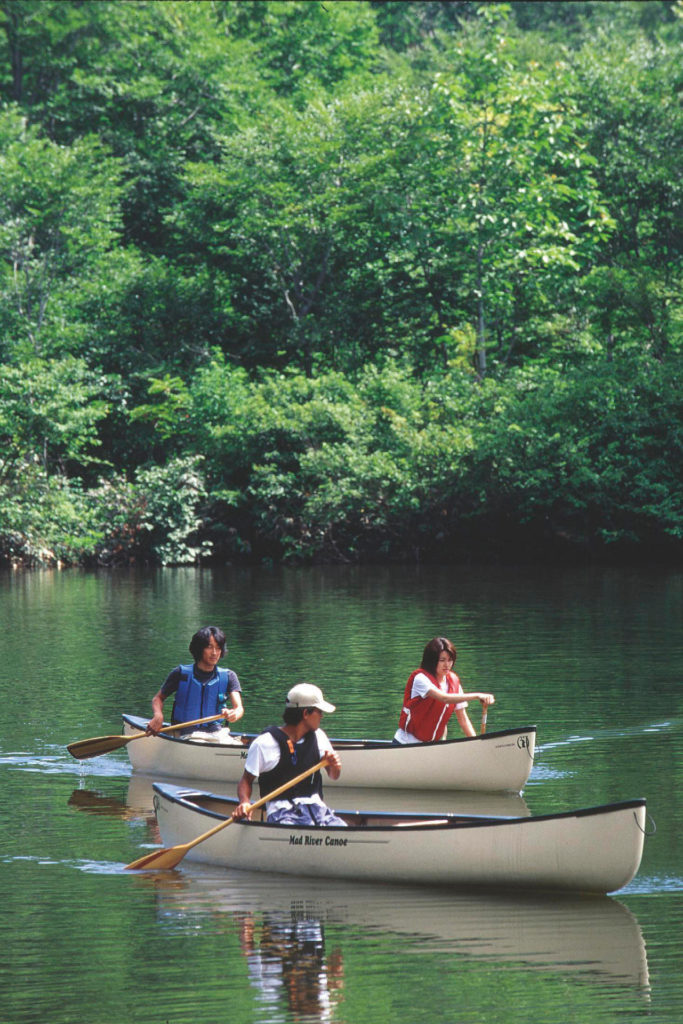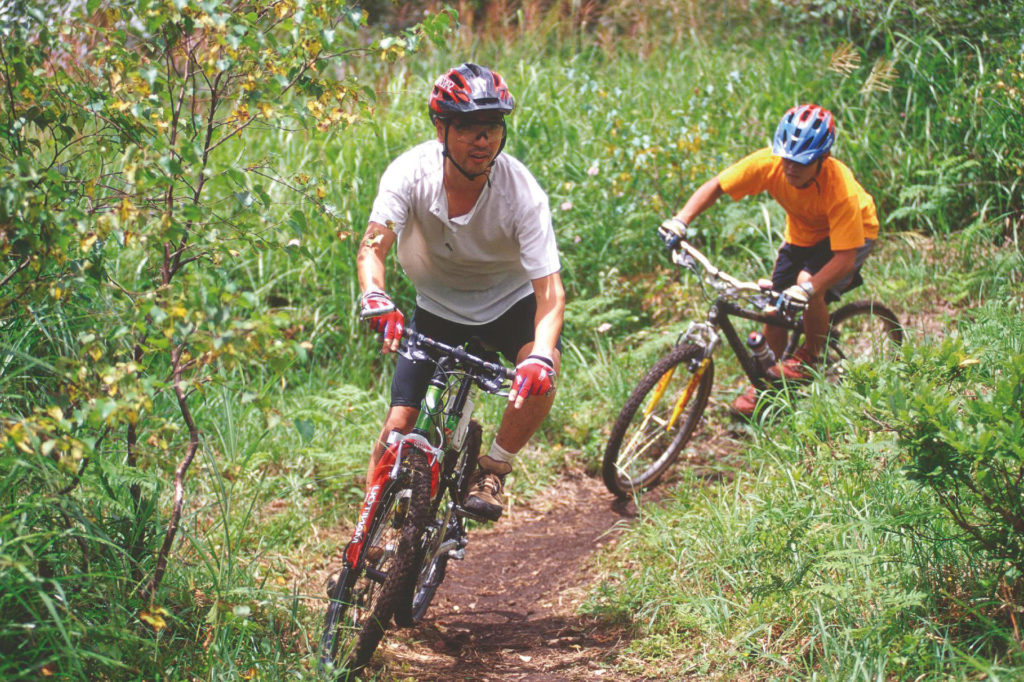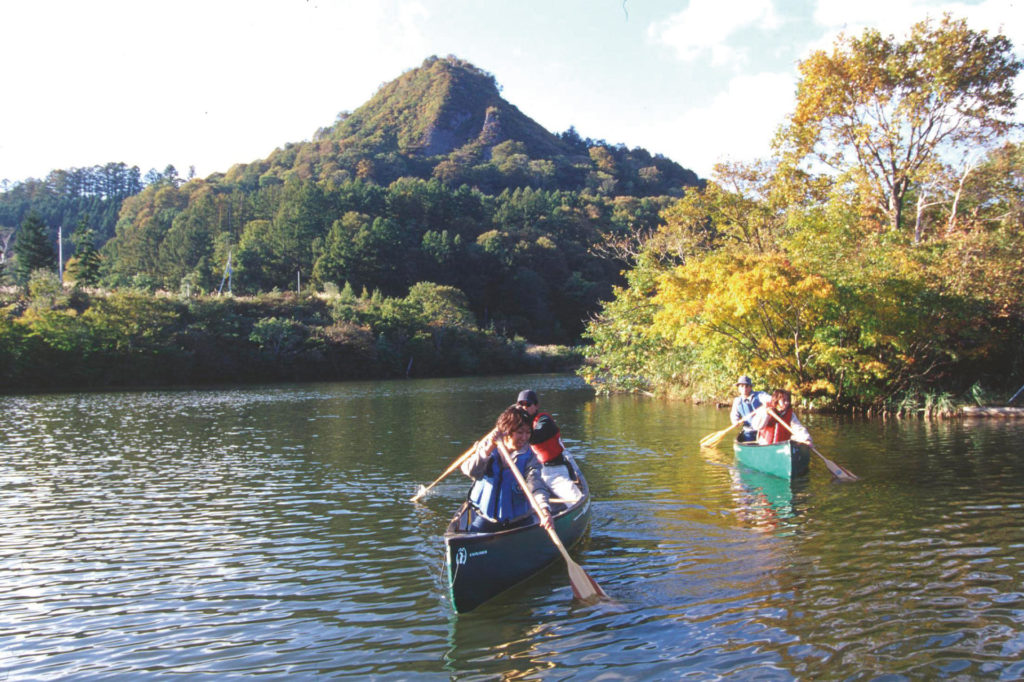Think MUJI and you probably think in earth tones. The popular brand was built on simple, organic designs and well-made, fashionable goods. Would it surprise you that MUJI also owns and operates three campgrounds in Japan? Probably not; it only seems natural.

Getting back to nature. Leaving behind the excesses of modern life. Ah, camping. It is the kind of contemplative, sit-down and recharge-your-batteries thing that every urbanite needs.
MUJI, whose award-winning minimalist designs have led to wild success in Japan and overseas, have applied the same concepts to creating camping areas that can be enjoyed by the whole family. Camping and MUJI are both frill-less, so it is only natural they found each other, right? I went to MUJI HQ to find out more.
One of the first things I wanted to know, as I sat down with MUJI Outdoor manager Masato Ishikawa, was why MUJI decided to open campgrounds in the first place.
“We wanted something to bring an extra dimension to our customers’ lives,” he explains. “We have clothing, household goods and food, but we also wanted recreation for our customers. This was where MUJI Outdoor came from.”

The locations of the three campgrounds MUJI operates are Niigata, Gifu and Gunma, three areas well known for outdoor recreation. All are beautiful, blue and green bastions of classic Japanese scenery.
Each is situated in the highlands, at high altitudes where summers are cool and the air crisp. Hiking, kayaking and fishing await. It makes me want to pack up a tent and head out right now. What else do I need?
“That’s right,” he adds. Apparently, MUJI provides everything from boats, tents, fishing rods—you name it.
This is something that particularly interested me. Taking your kids back to nature can be a rewarding, special experience but can lead to headaches; temper tantrums, kids getting sick, falling out of trees, getting lost, insect bites and other critters and no, Jimmy, don’t pick up that snake.
For parents eager to let their kids experience the outdoors but worried about the potential pitfalls, MUJI Outdoor seems to provide a good balance. I asked what makes MUJI great for families.
“We have many activities for adults and children alike,” Ichikawa explains, “and also many classes for children to take part. Popular ones include kayaking and making stone-fired pizza.”
However, there seems to be much more to do than he modestly admits. Classes for seemingly everything outdoor-related, from making birdcalls to learning how to fly-fish, are available to those willing to line up for them.

Adults are not left out of the fun either. At the Gunma campsite between Aug. 24-26, there will be a Summer Jamboree with live concerts featuring reggae and R&B artists. Other activities for kids and adults include an outdoor triathlon, mochitsuki (traditional way of making rice cakes) and various arts and crafts classes.
This summer, when you are sweating it out downtown shopping for new organic pillow cases with the kids, you might want to consider escaping the heat and crowds and getting back to nature—MUJI-style.
“Just don’t forget to bring your raincoat,” Ishikawa warns me, “and make sure to book the kayaking well in advance.”
MUJI Campgrounds
For reservations, call (03) 5950-3660 or visit the MUJI Outdoor Website at
www.mujioutdoor.net.
MUJI Tsunan Campground
津南キャンプ場
Location: Tsunan, Niigata
Address: Kamigouteraishi, Tsunan-machi, Nakauonuma-gun, Niigata-ken / 新潟県中魚沼郡津南町上郷寺石
MUJI Kampanya Tsumagoi Campground
カンパーニャ嬬恋キャンプ場
Location: Tsumagoi, Gunma
Address: Baragi Kogen, Hoshimata, Tsumagoi-mura, Agatsuma-gun, Gunma-ken / 群馬県吾妻郡嬬恋村干俣バラギ高原
MUJI Minami Norikura Campground
南乗鞍キャンプ場
Location: Takayama, Gifu
Address: Nenohara Kogen, Takane-machi, Takayama-shi, Gifu-Ken / 岐阜県高山市高根町子ノ原高原




